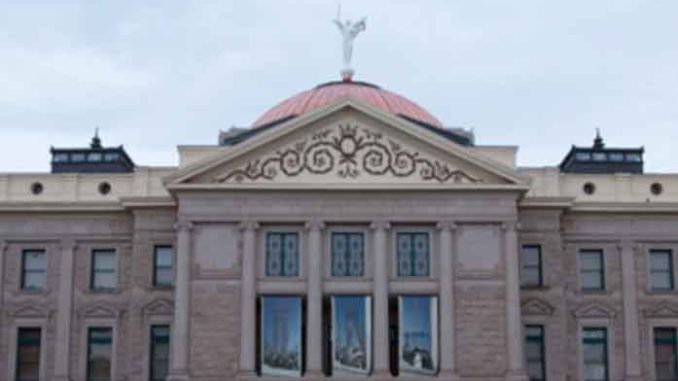
This week 5 of the 2022 legislative session saw a significant surge in the amount of bills that were heard or scheduled to be heard in standing committees.
The reason for this is undoubtedly the quickly approaching of the deadline for bills to be heard in original chamber committees.
As expected, most activity revolved around education and election integrity. As usual, most committee votes went along party lines, with Democrats in complete denial that there is anything that needs fixing in those two areas and vehemently opposing any constructive effort for improvement.
Among the education related bills, three were on subjects that are near and dear to conservatives, but create on liberal democrats a reaction similar to that experienced by Dracula when shown a cross.
HB2008 – schools; academic standards; civics instruction.
SB1131 – empowerment scholarship accounts; qualified students
SB1657 – ESAs; STOs; student empowerment fund
House bill HB2008 requires that public schools provide a “comparative discussion of political ideologies, such as communism and totalitarianism, that conflict with the principles of freedom and democracy that are essential to the founding principles of the United States”. This is necessary because of the disturbing trend of public schools’ love affair with anti-American and totalitarian ideologies. The proponent of HB2008, Rep. Nguyen is well suited to this role as a result of being the most knowledgeable member of the legislature regarding oppressive regimes. HB2008 cleared the House Education Committee along party lines.
Senate bill SB1131 called for a modest addition to those eligible to participate in the ESA program, namely the children of veterans and first responders. This bill failed in the Senate Education Committee when Republican Sen. Pace joined the Democrats with his NO vote.
Senate bill SB1657 is a very comprehensive bill, and a detailed discussion of all its provisions is not feasible, but two highlights are worth mentioning here.
One is that it makes some very needed improvements to the Empowerment Scholarship Accounts system.
The other one, perhaps more important, is that it makes some significant changes to the amount limits and ways of calculating the tax credits used to fund School Tuition Organizations. Not only does it significantly increase the current limit, but it also applies an inflation adjustment to future limits. It cleared its first hurdle by passing the Senate Education Committee.
SB1358 – hand counts; precincts; procedures manual
SB1360 – election observers; access
Senate bill SB1358 should not be necessary, but unfortunately it is because of the reprehensible and irresponsible behavior of our current secretary of state. This bill simply requires that elections instruction and procedures be in agreement with state statutes. It passed the Senate Government Committee.
Unfortunately, senate bill SB1360 did not fair so well, as it was held in the Senate Government Committee, and it is not known when or if it will be rescheduled.
This bill is an extremely important bill. In fact, it could be named the “Election Observers Bill of Rights.”
The first step in fixing a problem is knowing what the problem is. Therefore, poll observers must be allowed to observe properly so that they may report findings to proper authorities. Hopefully this bill will be brought up again and advanced so that we may take this giant step forward in our quest for election integrity.
We always like to facilitate fact checking of our comments. For a complete report on the bills that we have been tracking, including links to the bills themselves, go to REPORT
Next week promises to be every bit as exciting as this one was. The main player will be house bill HB2803, introduced by Rep. Fillmore. This bill, if enacted into law, will be a giant step forward in the advancement of school choice, because it will make empowerment scholarship accounts universally available. No more restrictions as to who is eligible and who is not. If a student is eligible to be in the public school system, he/she is eligible for an ESA.
For more information on this bill and other upcoming activity, visit UPCOMING
